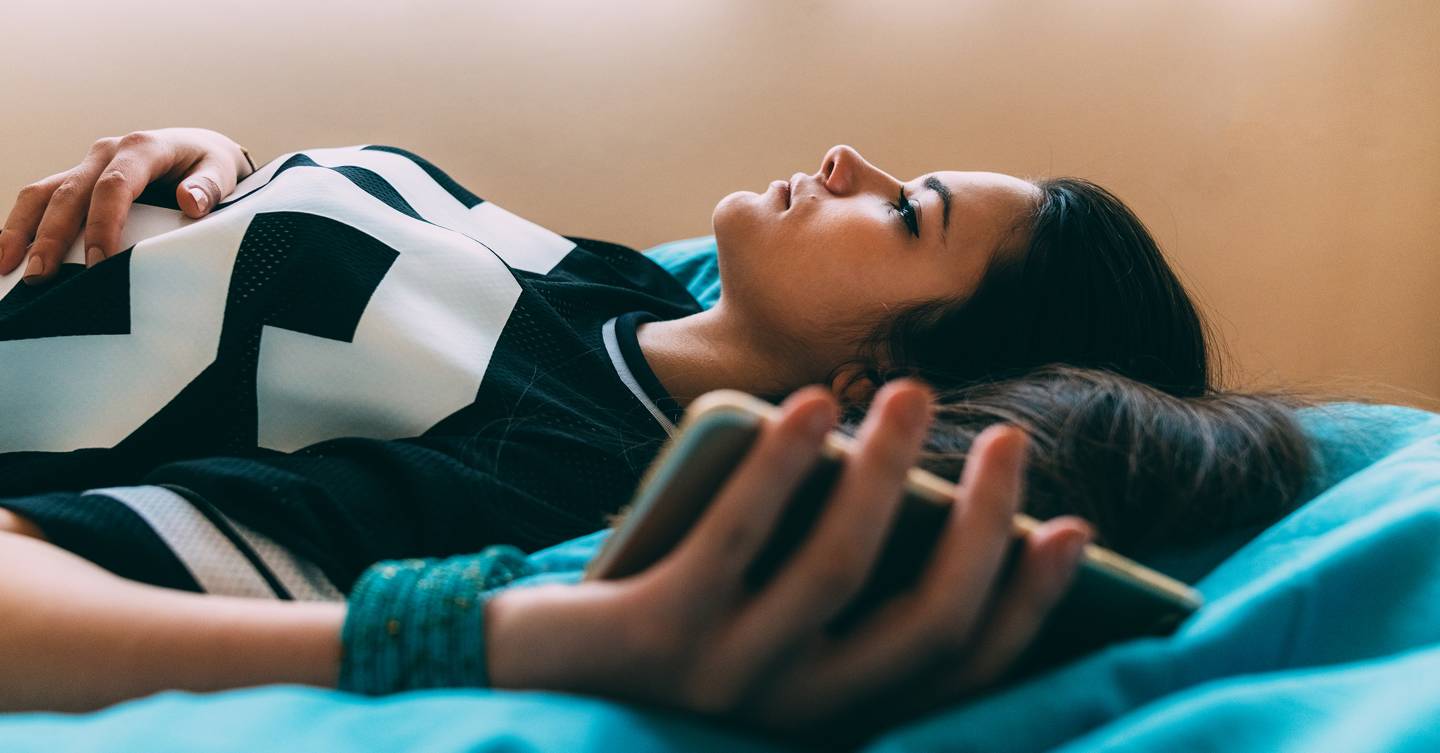Let me start by saying this: My friends are the single most important thing in my life. I’ve had the same group of friends since I was a kid. They are my soulmates. I wrote an entire novel about the power of female friendship, and dedicated it to brilliant, smart, hilarious, kind and totally batshit people I am lucky enough to call my best friends.
Which might make what I’m about to say sound a little bizarre: I am suffering a severe case of friendship fatigue right now.
I’m exhausted by the weekend Zoom catch-ups, where I find myself stuck for what to say after a week of doing, well, the exact same thing I did last week. I’m exhausted by the WhatsApp groups, where conversation quickly turns to the most recent depressing headline, or whose dad has or hasn’t had the vaccine. I’m exhausted by the bloody socially distanced walks, talking about the same bloody thing, in the same bloody park that I’ve been to so many bloody times I’m pretty sure I could walk around it backwards and blindfolded after ten G&Ts.
Surely that must mean I’m desperate for life to return to normal, right? For lockdown to be lifted so that my friendships can finally return to normal, without the need for Zoom, WhatsApp or the same bloody park?
Yeah, you’d think so. While there is a part of me that is of course counting down the days until that all-important 21st June, there is another part of me that is absolutely dreading it. Why? Because I have completely forgotten how to be a functioning, socialising member of society.
Firstly, I have become painfully, unbearably, mind-numbingly boring. I’m worried that watching grass grow would be more fun than going for a post-lockdown pint with me.
Case in point: One of the highlights of my week has been discovering a new fabric conditioner that smells utterly divine. The other highlight was having a lively chat with a local gal called Maureen on my Nextdoor app, moaning about the increases to our council tax bills.
Reader, the other day I watched The One Show. I have become the type of person who watches The One Show.
Not only have I forgotten how to hold a conversation or be an even vaguely interesting person, but I can’t remember how to dress myself. More fool me, for scoffing at the people on my Instagram who declared their conscious effort to ‘dress up’ every morning during lockdown.
I take it back, lockdown dresser-uppers. You were right all along. After spending the best part of a year in loungewear, and occasionally wondering if my colleagues can tell that I’m still wearing my pyjama top on Zoom, any slight sartorial know-how I previously had has gone. Fashion has officially left the building.
I’m going to be one of those people who gets turned away from bars and restaurants because of what I’m wearing – “What do you mean my threadbare joggers are in violation of the dress code? It’s called ‘athleisure’, look it up”. And don’t even get me started on make-up because my skillset now extends solely to mascara and concealer, and even that’s a struggle.
Basically, I’m stuck in a perpetual state of looking like the human embodiment of a hangover. This is not a woman who is ready for the real world.
And I’m not the only one who feels like this. Just a quick show of hands from my colleagues on Zoom, or a scroll through Twitter, reveals that a lot of us are feeling a tad apprehensive about having to be ‘normal people’ again once lockdown lifts. We are desperate for a soft launch back into our friendship circles.
“Friendships during the pandemic have looked different during each lockdown,” says psychologist, author and therapist, Dr. Kalanit Ben-Ari. “During the first lockdown, we were overwhelmed and trying to understand the situation. In the second, we saw initiations like Zoom parties, meet-ups and other online get-togethers.
“Then during the third lockdown, I think we have become more tired, exhausted, burnt-out and isolated. We are less motivated to socialise online.”
Given the extent of friendship fatigue in lockdown 3.0, it’s no wonder we may be feeling apprehensive about lockdown lifting. We’ve forgotten what it means to socialise out of lockdown.
“I assume that many people feel ambivalent about reintegrating back into society,” explains Dr. Ben-Ari. “It will come with the mixed feelings of joy from being social again – as human beings we are driven to connection – and concerns about social awkwardness, as well as safety”.
The solution? Going easy on yourself and take it slow.
“It’s a transitional time and it’s natural to feel anxious, so accept how you feel with compassion,” advises Dr. Ben-Ari. “Be honest with your friends and talk about your concerns.
“Start reintegrating back into your social life with small, manageable steps and see how you feel – with each step your confidence will grow.”
Finally, Dr. Ben-Ari says that we should be reminding ourselves of all the positive past experiences we had socially pre-COVID, and allow the happy memories to make us excited for what’s to come. “Lockdown has taught us the importance of community, support and belonging,” he says.
He’s right. Though I may have lost all my social skills during lockdown (my friends will argue I never had any anyway) and forgotten how to make myself look presentable (ditto), really, it doesn’t matter.
What matters is that I’ll be reunited with my lifelong friends, to catch up and laugh and mess about in ways we haven’t been able to for so long. That’s when I’m at my happiest. And really, there’s nothing more important than that. Except maybe never watching The One Show again.

